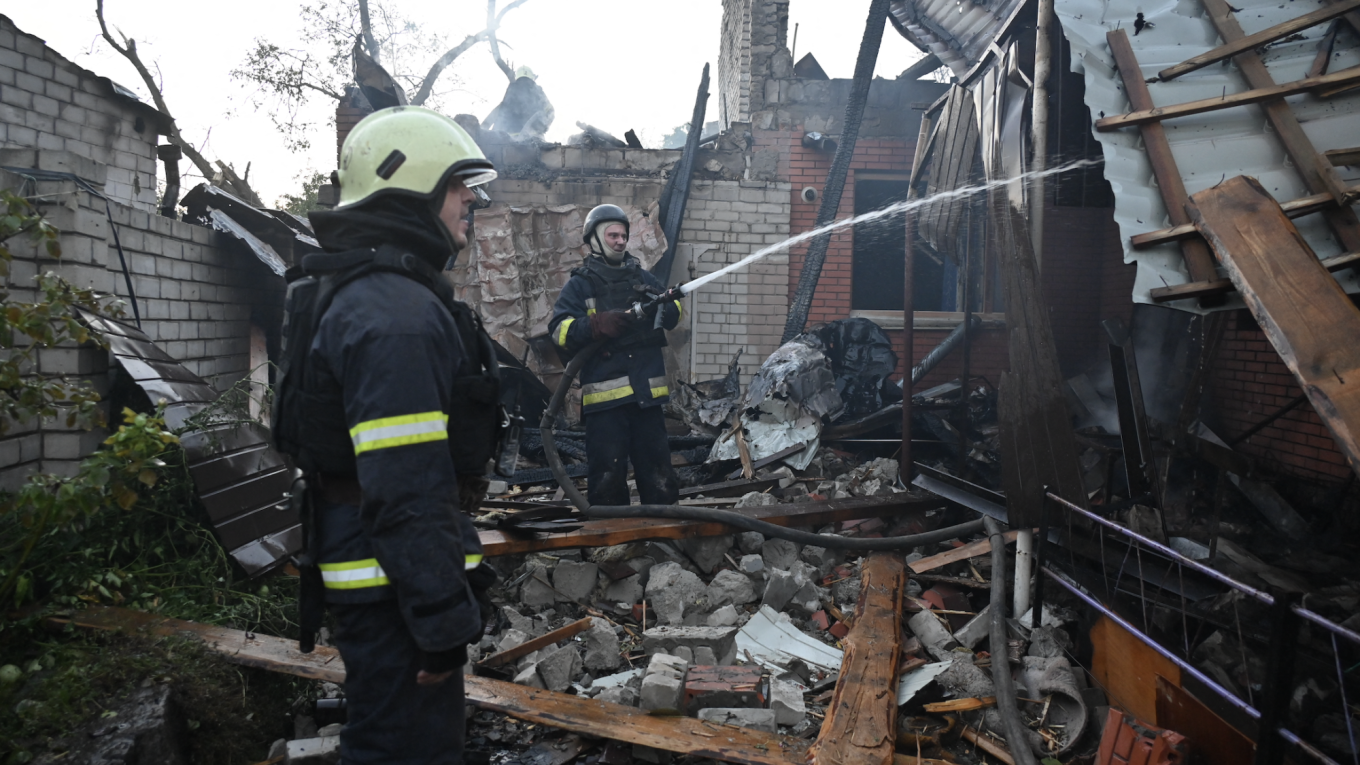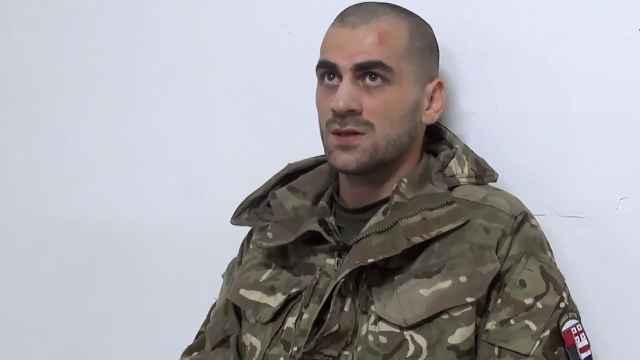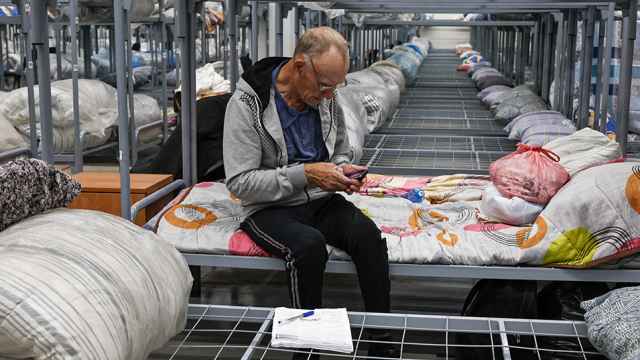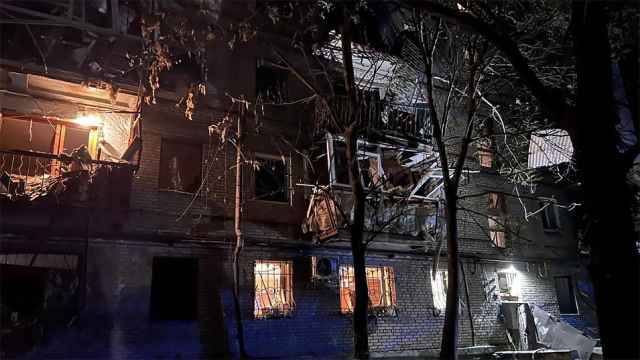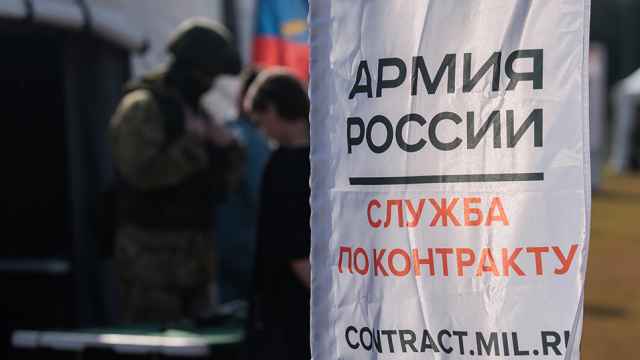A member of the Reuters news agency was missing and two others were wounded in a Russian strike on a hotel in the east Ukrainian city of Kramatorsk, the agency said Sunday, while Russian attacks killed 12 civilians across the country in the last 24 hours.
In another deadly day in the two-and-a-half year war, six civilians were also killed in Ukrainian strikes on Russian border regions, Russian officials said.
The attacks on both sides came a day after Kyiv celebrated independence from the Soviet Union and after a prisoner of war swap between the warring sides.
Moscow has continued its strikes and advance in eastern Ukraine, despite Ukraine's push into the Kursk region.
In the east Ukrainian city of Kramatorsk, a search and rescue operation was underway after a strike late on Saturday on the Hotel Sapphire, where Reuters said six of its crew covering the war were staying.
Kramatorsk — the last major city under Ukrainian control in the Donetsk region — is often used as a base for aid workers and foreign journalists.
"One of our colleagues is unaccounted for, while another two have been taken to hospital for treatment," Reuters said, adding that it was "urgently seeking more information.”
The agency said "three other colleagues have been accounted for" and said it was "working with the authorities in Kramatorsk, and supporting our colleagues and their families."
The head of the Donetsk region, Vadym Filashkin, said earlier two journalists were wounded while one was missing, saying the strike happened "in the middle of the night."
He said a rescue operation was ongoing and "the rubble was being cleared."
'Scary to go to bed'
Ukrainian prosecutors said the hotel was hit by a Russian Iskander missile at 10.35 p.m. on Saturday, with the strike also damaging the building next door.
AFP saw authorities give out plywood to locals for them to protect their windows.
Kramatorsk lies around 20 kilometers from the frontline, with fears over the city rising as Russian forces continue their push into eastern Ukraine.
Many local residents were going to bed or resting at the time of the strike.
"I was watching a film on my phone and then.. there was such a noise and the glass started smashing," 66-year-old Natalia told AFP, crying.
She said she had already evacuated once after a similar experience but came back and now will "think about" leaving again.
"It's scary to go to bed," she said, her voice breaking.
Another resident, 84-year-old Vasily who lives close to the hotel, was fixed plywood on his window frames after the glass smashed during the strike.
"We worry all the time... and now our turn has come," he said, adding: "It's about how lucky you get."
The elderly builder said he had "seen it all," with early childhood memories of World War II.
Twelve dead in two regions
Ukraine said Russian attacks on Saturday on the war-battered Donetsk region had killed seven civilians while shelling in the Sumy border region further north had killed four.
Donetsk leader Filashkin later said that one more person was killed by shelling in the frontline village of Ukrainsk on Sunday morning.
Ukrainian police said Russia had shelled some 50 settlements in the Sumy region — from where Kyiv has launched its incursion into the Russian Kursk region — on Saturday.
Kyiv said Russia also attacked the Kharkiv region at night, wounding eight people in the city of Kharkiv.
In Russia, officials said attacks on the Belgorod border region killed six civilians.
Belgorod governor Vyacheslav Gladkov said five people were killed in a strike on the village of Rakitnoye, in an attack that also wounded a dozen people.
He said 13 others were wounded, with six in a "serious condition," including a 16-year-old in intensive care.
Gladkov later said a man was killed by a Ukrainian drone attack in the village of Solovyevka further south.
Ukraine has held on to parts of the Kursk region, in an incursion that has seen more than 130,000 people displaced.
A Message from The Moscow Times:
Dear readers,
We are facing unprecedented challenges. Russia's Prosecutor General's Office has designated The Moscow Times as an "undesirable" organization, criminalizing our work and putting our staff at risk of prosecution. This follows our earlier unjust labeling as a "foreign agent."
These actions are direct attempts to silence independent journalism in Russia. The authorities claim our work "discredits the decisions of the Russian leadership." We see things differently: we strive to provide accurate, unbiased reporting on Russia.
We, the journalists of The Moscow Times, refuse to be silenced. But to continue our work, we need your help.
Your support, no matter how small, makes a world of difference. If you can, please support us monthly starting from just $2. It's quick to set up, and every contribution makes a significant impact.
By supporting The Moscow Times, you're defending open, independent journalism in the face of repression. Thank you for standing with us.
Remind me later.


